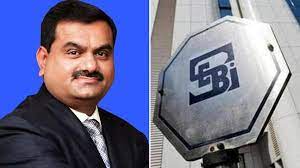Buying time: on the Securities and Exchange Board of India probe and allegations against Adani group
Dithering on the Adani group probe will dent SEBI’s credibility
Barely two days before the expiry of a Supreme Court-stipulated deadline to probe allegations raised by Hindenburg Research about misdemeanours and violations of stock market norms by the Adani group, the Securities and Exchange Board of India (SEBI) has sought at least six more months from the Court to finalise its findings. Following the bloodbath in the prices of most Adani group stocks after the publication of Hindenburg’s report in late January, the Court had responded to a PIL and set up an expert committee to investigate the causal factors behind investor losses and ascertain regulatory failures. The SEBI chief, who termed the Hindenburg-Adani-linked issues as “the elephant in the room”, was to ensure the committee gets the information it needs. Separately, the Court tasked the regulator to speedily conclude its ongoing probe into the group for violations of its regulations. It also sought a look into whether the group had flouted the minimum public shareholding norms, failed to disclose related-party transactions, and manipulated stock prices. The two-month deadline set for SEBI and the expert committee, led by former Court judge A.M. Sapre, ends on May 2. SEBI’s last-minute plea for more time, shall also affect — if not effectively derail — the deliberations of the Justice Sapre panel.
The regulator has “ crystallised a prima facie view” on some issues, including a dozen suspicious transactions that pertain to misrepresentation of financials, circumvention of norms and possible fraud. However, it has cited the complexities of the transactions to argue that a detailed assessment would normally take 15 months and it is trying to do it in six months. Even if one leaves aside the merit of the complexity card played by a professionally-led independent regulator with a primary mandate to protect investor interests, the timelines suggested are disingenuous. If SEBI does submit its report to the Court by this November, it would mark 10 months since the Hindenburg report, and almost two years since it initially started examining complaints against the group. Where wrongdoing has been found, it need not take six months to confirm them. Interim findings must be presented with any caveats deemed fit, just as interim orders can be passed on established violations (thus, informing and protecting investors) rather than condoning them in the name of uncovering the big picture. For an issue that has undermined the credibility of the Indian market and its governance standards at a scale unmatched by the Satyam fiasco and the IL&FS implosion, SEBI’s petition does not inspire confidence. And that is bad news for investors in India’s financial markets.
